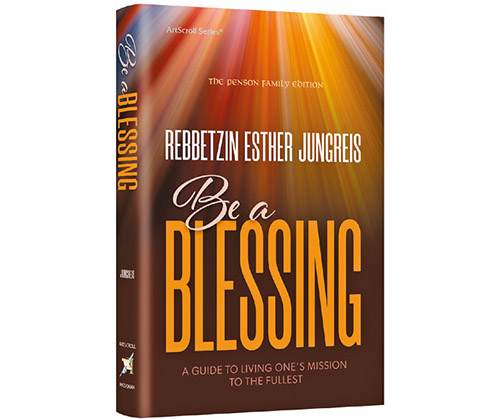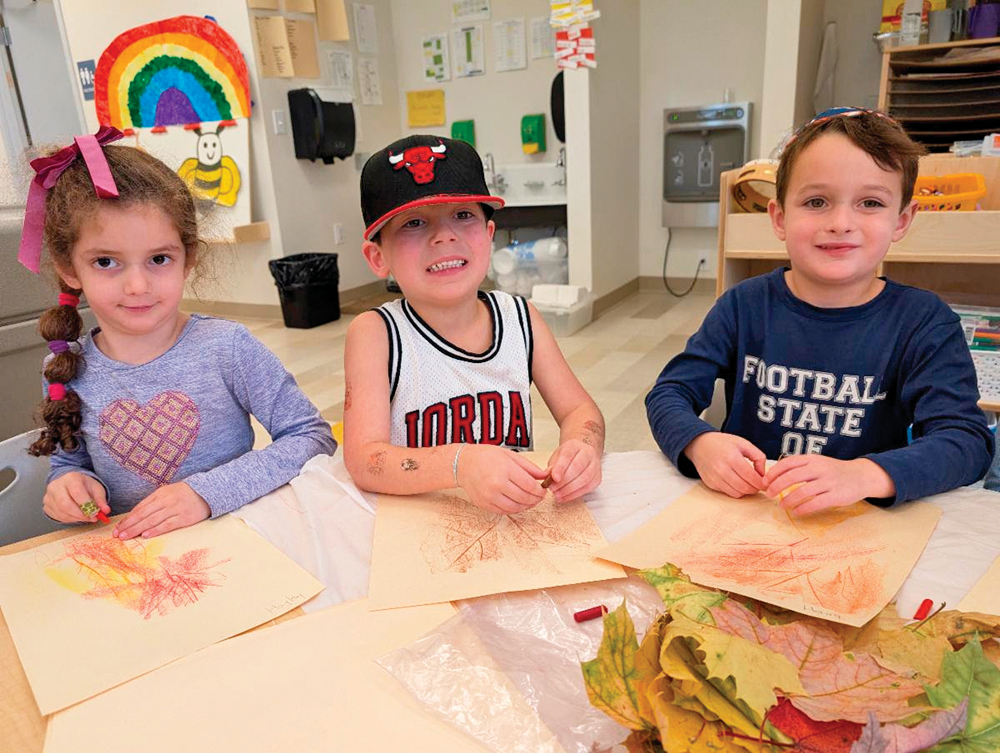
Highlighting: “Be a Blessing” A Guide to Living One’s Mission to the Fullest,” by Rebbetzin Esther Jungreis. Mesorah Publications Ltd. 2022. Hardcover. 249 pages. ISBN-13: 978-1422632680.
(Courtesy of ArtScroll) “Be a blessing, my child, be a blessing.” They were words whispered from a father to his child as she confronted the horrors of the Holocaust. That child would grow up to be the world’s beloved rebbetzin, Rebbetzin Esther Jungreis.
“Be a Blessing,” published by ArtScroll/Mesorah, shows us how she chose to be a blessing in the darkest of times and most horrific of places. In Bergen-Belsen. In a Swiss boarding school, as a penniless refugee, separated from her family. In a hospital bed in San Diego.

Written as she recovered from a difficult and painful accident, “Be a Blessing”—the Rebbetzin’s final book—sings out with faith and hope, even in times of despair.
In these pages, we will hear Rebbetzin Jungreis speaking in Madison Square Garden, in a U.S. Air Force base, in a hospital room where she lies in terrible pain. We will hear her speaking to individuals looking for help or comfort. We will hear her speaking to herself, a young Holocaust survivor. And, most importantly, we will hear her speaking to each one of us, our concerns, our hopes and fears and questions.
From the Rebbetzin we will gain tips for a better marriage and for being better parents. We will learn how to find the mission our Creator has chosen for each individual, and how to make room for Hashem in our hearts. And we will discover how to take our personal mission, use it to “be a blessing” and convert darkness to rays of light.
In Jewish tradition, before parents journey to the next world, they bless their children. In this, the Rebbetzin’s final message to us, she has blessed all of us—because she felt all of God’s people were her children—with the greatest blessing of all: to be a blessing.
The following is a brief excerpt from the book.
Hit a Home Run for Your People!
Some years ago, President George W. Bush appointed me to the board of the United States Holocaust Memorial Museum, which brought me quite frequently to Washington. On one of these occasions, following a board meeting, I was walking on the street when a young rabbi with a large group of students spotted me.
He came running. “Rebbetzin!” he exclaimed, “I’m so happy I’m meeting you! I have here my talmidim,” he went on, pointing to the young boys. “Could you offer them some words of chizuk and inspiration?”
In the street, amid the noise of passing traffic, with my young audience distracted by the sights—that was not exactly the venue in which I would choose to speak. But I do believe everything is bashert. So if I encountered these young boys, and their rabbi asked me to address them, how could I say no?
“Are you all into sports?” I asked.
My question was greeted with an enthusiastic yes.
“Then let me tell you a sports story,” I said, “and put it away into your hearts and your minds. And one day, please God, you will tell it to your own children and grandchildren.
“Once there was a highly successful sports team. Tickets to their games were very much coveted, and when they played, the stadium was sold out. And then, there was some internal fighting among the team. The players were angry at each other. Some quit and joined other teams, other players failed to train, and still others became indifferent. The only ones who were left were the fans.
“Now, let me ask you,” I challenged the boys, “do you think a team can survive with only its fans?”
“You must be kidding!” they responded. “Of course not! It’s a no-brainer!”
“You’re right,” I said, “it is a no-brainer. But unfortunately, that is what happened to us, the Jewish People. We have many ‘fans.’ Bar mitzvah parties galore. But does having a party mean that the bar mitzvah boy fulfills the challenge of being a bar mitzvah—which means ‘son of mitzvos, commandments’? Does he put on tefillin every morning? Does he go to minyan? Does he study Torah? Is that guy a player or a fan?
“I’m a Holocaust survivor,” I went on. “When I was your age, I was in the ghettos, the concentration camps, the displaced persons camps. My zeides, my bubbes, my aunts, uncles, and cousins—all holy people, great players for Hashem’s team—can no longer play.
“So listen, boys,” I said. “You have an awesome responsibility. You must pray for them, for they can no longer pray. You must study Torah for them, for they can no longer study. You must give tzedakah for them, for they can no longer give tzedakah. You must do mitzvos for them, for they can no longer do mitzvos.
“So, guys, listen to me,” I said. “Go into the field and hit a home run for your people. Build up your team and make it better than ever. And if you do, the stadium will be filled and everyone will be cheering. You can restore the faith of our people. Make our people win. Let us build a team of Torah, and spread the holy rays of blessing, truth, kindness, integrity, wisdom, and righteousness, which are all contained in our Torah. We need only to bring them forth.”













